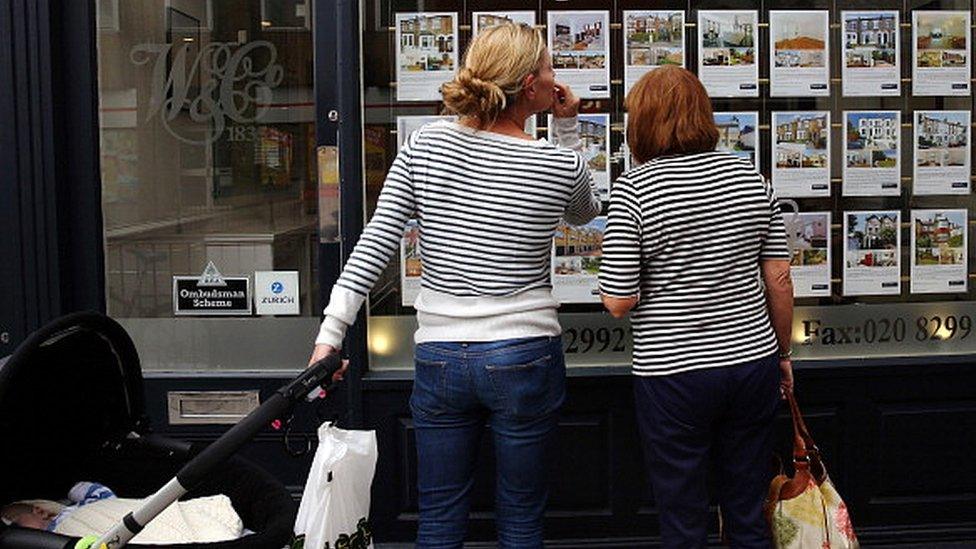Interest rates: Five things we learned from the Bank of England
- Published

Bank of England policymakers have voted unanimously to raise interest rates from 0.5% to 0.75%.
The bank left its forecasts for UK growth, inflation and employment broadly unchanged. And it signalled that any further rate increases would be gradual.
Here are five things we learned.

1. Got a new job? Expect a big pay rise
Pay packets are rising. The bank noted that the lifting of the 1% pay cap for public sector workers and broader pay growth would start generating inflationary pressures over the coming years.
It said official data last year already showed that workers who switched jobs or were promoted were already enjoying pay rises seen before the financial crisis.
Pay was only subdued for those stuck in the same job.
The bank said more recent earnings growth suggested "pay rises have broadened out".

2. Falling house prices in London are unlikely to spread
Past experience suggests when house prices fall in the capital, the rest of the market follows.
But the bank outlined three reasons why London was likely to be the exception rather than the rule.
First, London's higher prices mean properties in the capital are more affected by borrowing limits and tax changes brought in to rein-in risk.
Second, the buy-to-let market, which has also been hit by a stamp duty surcharge, is more concentrated in London.
Third, Brexit uncertainty has triggered a fall in net EU migration. This has hit London more than elsewhere because many live in the capital.


3. Trade tensions are weighing on global growth
The bank lowered its forecasts for global growth this year and next, blaming heightened trade tensions.
It predicted the global economy will expand by 3.75% this year and 3.5% in 2019.
This is slightly lower than its respective estimates of 4% and 3.75% three months ago.
It said global tit-for-tat steel tariffs were weighing on metals prices as well as global share prices. "Trade protectionism... could weigh further on the global outlook," the bank said.

4. British households are in a strong financial position
Households have been feeling the pinch, but the bank says that, generally, rising wealth - partly due to higher house prices - had helped to boost consumption in recent years.
Policymakers said: "Household balance sheets look relatively strong compared to the past as the stock of both financial and housing assets has risen considerably faster than the stock of debt."

And the bank believes these factors will continue to support consumer spending, even as real pay remains weak.
With more people in work than ever before and "historically high" rates of job security, the bank said households are less likely to feel the need to squirrel away savings, which would also support economic growth.

5. Interest rates may never get back to historic levels
The Bank of England used the latest inflation report to spell out why interest rates were unlikely to return to the 5% level seen before the financial crisis.
An older population, greater saving and weakness in productivity growth meant there was less need to borrow.
The bank said interest rates were "likely to remain materially below the 5% level set on average prior to the crisis" and settle at between 2% to 3% in the long term.
- Published2 August 2018

- Published2 August 2018
- Published2 August 2018

- Published2 August 2018
